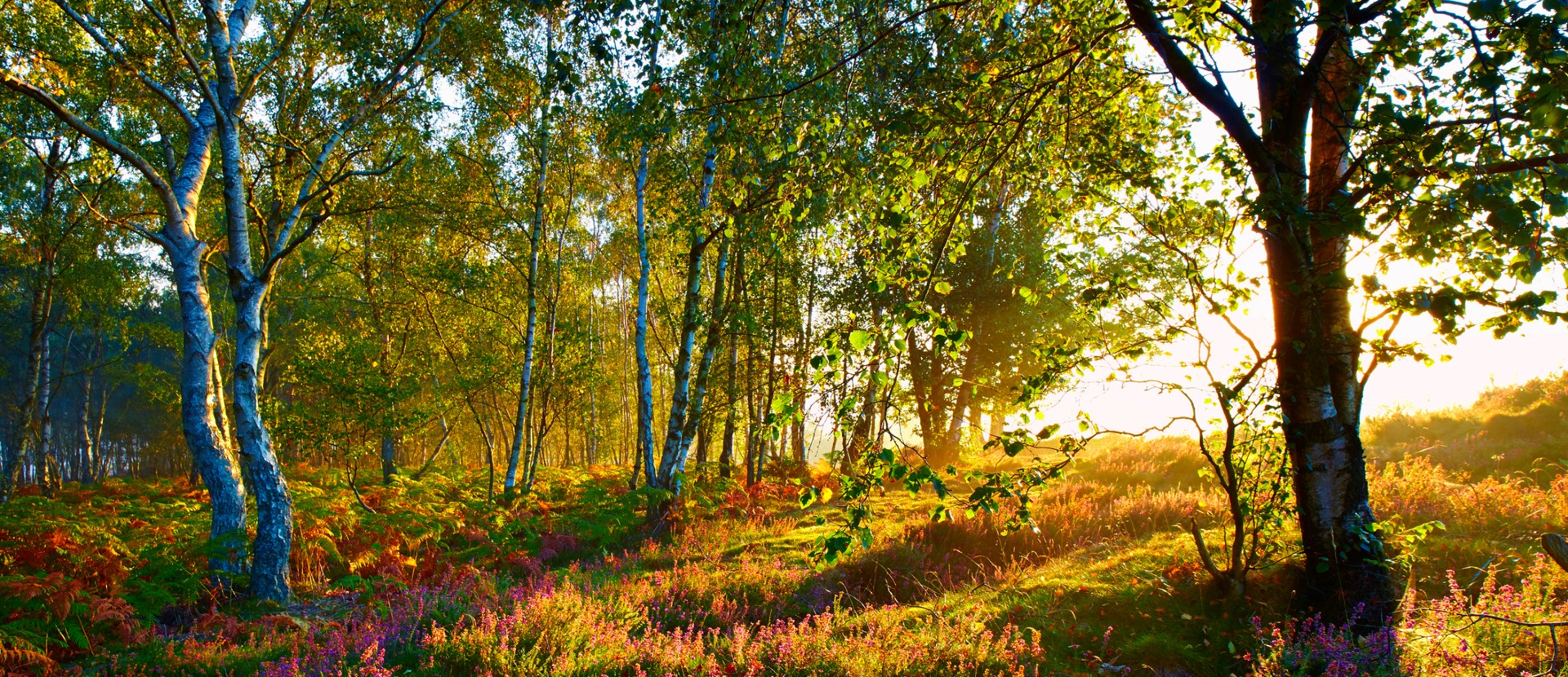University of Stirling researchers are part of a new £10.5m UK programme focussing on how trees can enable the UK to reach net zero greenhouse gas emissions.
The Future of UK Treescapes programme will develop new tools and approaches to help trees and woodlands adapt to climate change, improve understanding of the value of trees to people and the planet, and support the expansion of treescapes across the UK.
Dr Daniel Chapman, a lecturer in Biological and Environmental Sciences at the University of Stirling, is involved in a project called newLEAF, one of six to share the UK Research and Innovation (UKRI) programme funding.
NewLEAF - Learning to adapt to an uncertain future: linking genes, trees, people and processes for more resilient treescapes - will take an interdisciplinary approach to explore how quickly tree species can genetically adapt to change in the wild, whether or not human intervention is needed to accelerate adaptation in tree populations, and how best to intervene if so.
.jpg)
Dr Daniel Chapman of the Faculty of Natural Sciences at Stirling
Dr Chapman will be mapping how pests and diseases have been affecting different tree species in the UK and across the world, in order to predict the outcome of future interventions. He said: “Globalisation means the spread of pests and diseases between different trees and plants is increasing. We want to be able to predict the spread, how key species will adapt, and how that adaptation will interact with other stressors like climate change.
“We want to increase forest cover in the UK and we need robust data in order to better understand how to restore our woodland.”
NewLEAF is led by Dr Stephen Cavers from the UK Centre for Ecology & Hydrology, with partners from the universities of York, Strathclyde, Stirling and Glasgow, the Robert Gordon University, the James Hutton Institute and Forest Research.
Drawing together an academic team with expertise in ecology, evolutionary biology, forest pathology, epidemiology, economics, social science, data science, mathematics and the arts, the project will draw on evidence from the UK and abroad, from places where historical and current regeneration of tree populations is being shaped by human activity and climate change.
Head of Sustainable Management at Scottish Forestry, Chris Stark, said Scotland’s forests and woodlands would play a significant role in helping the UK achieve its net zero ambitions.
He said: “Scotland provides around 80% of the UK woodland creation target. We are increasing our yearly woodland creation targets to 18,000 hectares a year by 2024/5 and this will help soak up millions of harmful CO2 emissions. This increase in woodland cover will also improve the environment, boost nature and generate over a £1billion to the Scottish economy each year.
“We are supportive of the different strands to this research which will help inform how we manage and futureproof our woodland resource for generations to come.”
Involving multi-disciplinary teams from thirteen universities and research institutes, over 40 non-academic partners and supporters, and with funding for three years, the Future of UK Treescapes Programme overall will:
- Understand how local authorities are meeting their tree planting targets, the cultural significance of trees to communities and how well they capture greenhouse gases
- Work creatively with young people to co-produce new approaches to creating and caring for treescapes that benefit the environment and society
- Investigate how trees respond to stress and pass on that memory to future generations
- Assess the potential of woodland restoration along 240,000 km of England’s rivers and bodies of water
- Examine how community forests enable stakeholders to work in partnership to deliver multiple benefits from forests
- Study whether trees can adapt effectively to climate change, pests and diseases.
Professor Sir Duncan Wingham, Executive Chair of NERC, part of UKRI, added: “Our trees and forests are a precious resource and part of the solution to tackling the climate and ecological emergencies we face and helping the UK reach net zero in 2050.
“This research will increase our understanding of the huge societal, economic, cultural and environmental benefits associated with treescapes. This includes the importance of trees in urban spaces, why we connect with forests, and how we encourage landowners and farmers to plant more trees.
“This knowledge will help us identify where and how we can expand our woodlands and ensure their resilience to pressures and stresses over decades and centuries.”

